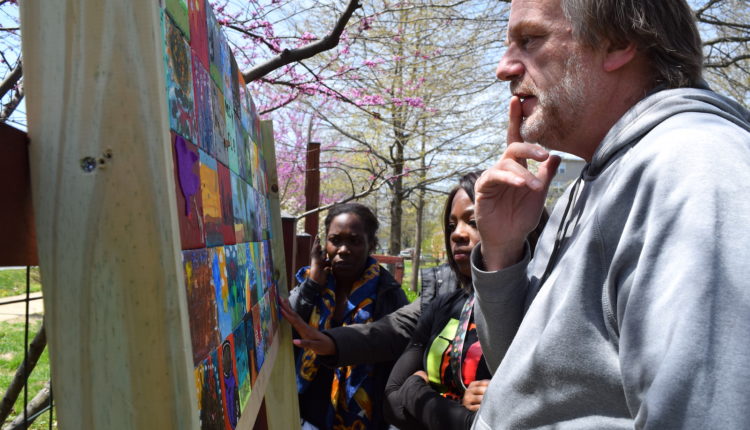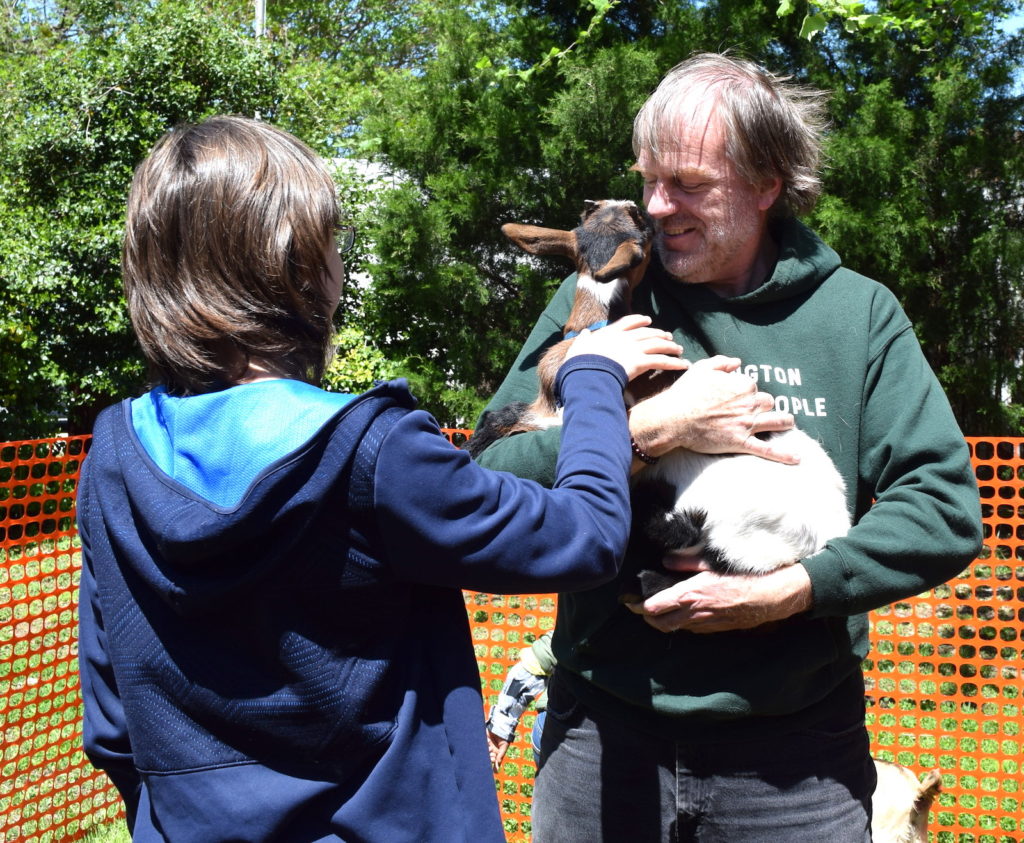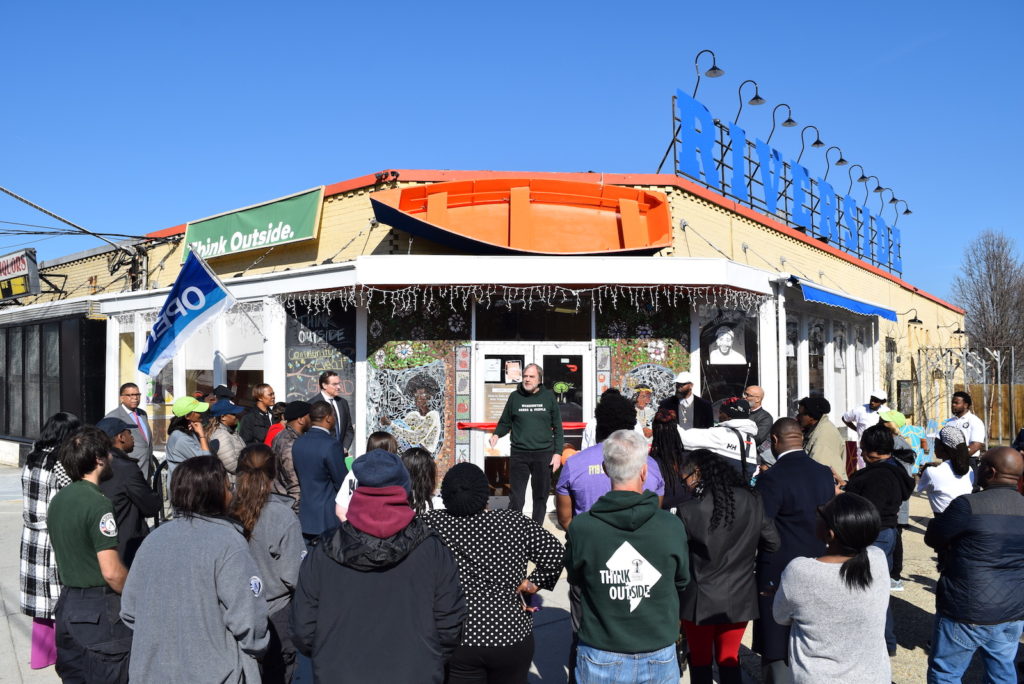
‘We want to get people outside’: Longtime DC parks activist aims to harness nature’s transformative power
As the Earth Day Network looks ahead to next year’s 50th anniversary of Earth Day, the event’s mission has remained a constant — “to diversify, educate and activate the environmental movement worldwide.” That same mantra planted a lifelong passion in DC activist Steve Coleman, who began devoting himself to improving parks a year before the very first Earth Day in 1970.
At age 8, Coleman started a Ranger Rick Club whose members cleaned local parks in the Long Island town where he and his family were living at the time. In junior high, he helped turn a dump next to his school into a park. “I’ve kind of been doing the same thing ever since,” said Coleman, who moved to DC in his 20s with his eyes on a career focused on global environmental issues.

He ended up acting locally, though. Coleman, the longtime executive director of Washington Parks & People, helped launch the group’s predecessor in 1990 and has overseen its growth since then into an alliance of community-based partners working on environmental reclamation. The group’s origins lie in the Reed-Cooke section of Adams Morgan, where Coleman, now 59, still lives — and where crime was a major issue at the time.
“We were just trying to stop the killing,” Coleman said of the group’s origins as a volunteer anti-crime patrol in a nearby park that many residents were afraid to visit. “At the time, Meridian Hill/Malcolm X Park was seen as the center of crime [in DC] — it actually wasn’t, but it was the most crime-ridden national park in the region.”
Coleman’s group started patrolling the park without weapons and with one rule: Say hello to everyone. Greeting park users helped them foster a sense of community, combat crime and ultimately reconnect people with nature. Before long, group leaders organized as Friends of Meridian Hill; later, they sought to use similar approaches elsewhere to help residents throughout DC build a better life by fostering opportunities for recreation and leisure close to home. With the citywide focus came the new name: Washington Parks & People.
The group currently operates in 230 sites around the city, including Ward 7’s Marvin Gaye Greening Center — for years, an empty, abandoned lot — and Ward 1’s Walter Pierce Park. Last month, Washington Parks & People hosted Earth Day events at many of those sites; in honor of Mother’s Day this weekend, a holiday pop-up market will take place Saturday afternoon at the group’s Riverside Healthy Living Center in the Deanwood neighborhood. Washington Parks & People also continues to hold activities where the group began its work: It’s co-sponsoring a bird walk through Meridian Hill/Malcolm X Park on Saturday, May 11, in honor of Migratory Bird Day, and a week later, the group’s monthly “Service Saturday” event will have volunteers clean up debris, remove invasive species and perform some simple maintenance tasks.
“We see a tremendous opportunity to use all the parkland, community gardens, trails and playgrounds as a base of learning, community, nutrition, job training and countering poverty,” Coleman said.
Headquartered in the Josephine Butler Parks Center next to Meridian Hill/Malcolm X Park, Washington Parks & People works in all eight wards of DC. “It’s been an amazing journey,” Coleman said.
Coleman loves the diversity of his Reed-Cooke neighborhood. As a community leader, he helped to fight for affordable housing there, standing up for what he called “everyone’s heritage.” His efforts included a successful campaign to change inappropriate industrial zoning that jeopardized the ability of many low-income residents to remain in their longtime homes. After buying his home in 1985 thanks to DC’s tenant-purchase laws, Coleman said, he drew on his experience to help neighbors facing displacement, raising money and drawing media attention to help tenants of several neighborhood buildings buy their homes from neglectful owners.
“There’s so much we have to learn from each other, especially in these times,” he said. “The model of unity and diversity is the model of Adams Morgan.”
The plight of his neighbors — and inspiration from neighborhood leaders and mentors such as Josephine Butler and Edward Jackson Sr., both of whom had been instrumental in the District’s first Earth Day — helped spark a shift in Coleman, who had moved to DC intent on pursuing a broad environmental agenda through journalism or advocacy work.
“I owe a great debt to those tenants and other neighbors here, who helped me see that the global environmental needs that had brought me to DC … would not get anywhere unless I was also taking immediate action for the comprehensive sustainability of my own community,” Coleman said.
Working in the nonprofit sector, Coleman is happy that he can make a difference in people’s lives. “It sounds corny, but I like showing people that their dreams can come true,” he said. “Right now, there’s a real confluence of nonprofit, for-profit and the government sectors.”
Each sector has things to learn from the others, according to Coleman. Generally speaking, nonprofits ought to be more entrepreneurial, for-profit companies more accountable and government agencies better at engaging the public, he said.
An entrepreneurial approach has enabled Washington Parks & People to be self-sustaining and to spend all of the donations they collect on the work they do around the District, Coleman said.

The Josephine Butler Parks Center, for instance, is a stately historic landmark that is rented out for events such as weddings. Two other revenue-raising projects are located east of the Anacostia River: the area’s first community farm-to-table restaurant — the FresSHe Cafe at the group’s Riverside Healthy Living Center — and its first permanent bike repair station, where young people can learn how to fix their own bicycles.
Coleman said he wishes that Washingtonians spent more time outdoors. “It sounds silly, but we have a campaign called ‘Get Outside,’” Coleman said. “You lose a lot when you’re stuck inside buildings. There’s a disconnect from each other and the land.”
Coleman said that he finds that getting outside and learning about nature makes people more likely to take action against climate change. It also leads to face-to-face encounters with neighbors rather than virtual interaction via the internet, he added.
Washington Parks & People will be busy throughout the rest of the spring with ongoing work to transform its 15th Street NW headquarters into an “Embassy of the Earth.”
“The idea is to make it into a lasting, living museum and training center for the community parks movement here,” Coleman said.
Coleman’s group moved into the then-dilapidated building 21 years ago as “legal squatters,” allowed by the owners to occupy it rent-free. The 1927 mansion — once the Embassy of Hungary — had been vacant for years. After the embassy left, a series of owners had rented out space as apartments and offices, with dwindling success as conditions deteriorated and graffiti and broken windows multiplied. Coleman convinced the landlord to transfer the building to a nonprofit partnership, according to a Washington Business Journal article. He then convinced the DC Council to forgive back taxes and the mortgage holders to offer more favorable terms, and lined up volunteers to make the necessary improvements — work that had already taken more than 20,000 hours as of 2001.
Over the years, the group has produced hundreds of concerts, performances and arts programs at parks across the city, working with partners such as the Malcolm X Drummers and Dancers, Dance Place, Levine Music, the DC Youth Orchestra Program, the African American Music Association, the East of the River Steel Band and GALA Hispanic Theatre.
This year’s plans include adding Kenilworth Park to its ParkArts program, which brings pop-up artistic and cultural performances to parks and green spaces in wards 7 and 8. In addition, the group will participate in National Trails Day Weekend on June 1 and 2, with plans for a two-day, 28-mile hike across the city.
Like many of the group’s programs, the offerings aim to harness the transformative power of the natural environment for urban residents — a chance for people to develop a personal connection to nature that might even change their own nature, so to speak.
“We want to get people outside and invite them to volunteer with us,” he said. “You can really make a difference in the nature and lives of people in your community.”


Comments are closed.